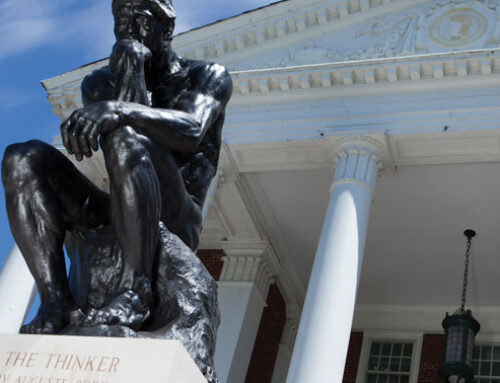By Eli Hughes —
Students at the University of Louisville had the chance to share their poetry and speeches advocating for racial justice during a Students Speak Out event hosted by the Muhammad Ali Institute. The event took place Nov. 19 at the Red Barn and was a part of the campus’s Peace and Justice Week.
Ashleigh Hazley, assistant director of the Muhammad Ali Institute, put the event together. Five performers spoke about a variety of issues including racism, sexism, Islamophobia and police brutality.
Mariyomo Issa, junior at U of L and Muhammad Ali Scholar, gave a speech titled, “Resentment of Black Muslim Women from 3 Dimensions.” Her speech detailed how she feels isolated from communities she should be welcomed into because of other aspects of her identity.
Issa discussed how she felt pressure to stop wearing her hijab by some members of the black community, and how whenever she faces discrimination, it’s hard to tell if it’s because she’s black, Muslim, or a woman. In her words, “Skin color, religion, gender. In all aspects, I have to face persecution.”
Another performer at the speak out was freshman Rawan Saleh who read her poem, “Islamophobia.” Saleh’s poem discussed the double standard between white Christian terrorists and Muslim terrorists. She listed tragic acts of terror enacted by white men. For example, the Sandy Hook Elementary School shooting and the Charleston church shooting.
The main point of her poem was to show that violent acts by white people are often characterized as just one person committing a terrible crime, while Islam is often viewed as a violent religion when someone who is Muslim commits a violent act.
Saleh’s poem shed light on the peace Islam is supposed to represent. “Islam is not synonymous with terror,” she says in her poem. She ended the poem with the traditional Muslim greeting in Arabic and then in English, “Peace be upon you.” She responded to herself with the typical reply, “And peace be upon you, too.”
Quintez Brown, a sophomore, was one of the event’s hosts, and during a break in the performances, he posed a question, “Why is it important for college students to be engaged in conversations surrounding racial justice?” After taking answers from the audience, Brown offered his own response. He detailed specific hardships that marginalized people face and said, “Having an engagement with these issues helps us understand how the real world works and operates.”
Peace and Justice Week is a week-long conversation about racial justice hosted by the Anne Braden and Muhammed Ali Institutes and Cooperative Consortium for Transdisciplinary Social Justice Research.



